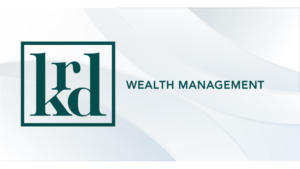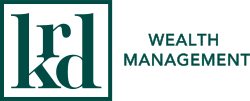By Srbo Radisavljevic, CFP®
After remaining relatively low for several years, inflation rose sharply during the winter of 2021-2022, fueled in part by soaring oil prices, and has held steady at about 8.5% throughout 2022 (so far). Consumers are feeling it in transportation costs and other everyday purchases, while investors are feeling it in the markets.
The Federal Reserve Bank’s Open Market Committee (FOMC) has implemented three consecutive 75-basis point increases in the federal funds rate, which is the target interest rate set by the FOMC, and more increases are expected in the near future.
As the Fed attempts to pump the brakes on inflation with interest rate hikes, the equity and fixed income markets react.
Rebalancing
During a plummeting market, the goal of rebalancing shifts towards minimizing losses. Some key strategies include:
- Overweighting alternative investments like commodities and real estate, where and when appropriate, can help investors focus their resources on non-correlated assets that provide offsetting protection. Theoretically, if one starts to go down, it will not drag the others down with it.
- Creating a stronger cash position can reduce volatility in a portfolio. Many investors, especially those near or in retirement, are nervous about the economy, and are pulling out enough cash to cover three to six months of living expenses. While in some cases this may be driven by fear, which is not a good basis for making investment decisions, a little extra cash on hand can provide certain investors the reassurance they need to relax and consider the rest of their portfolios with a clear mind.
- On the growth side, overweighting U.S. stocks against international stocks is a constructive move, enabling investors to ride a continuing 10-year wave of domestic stocks outperforming the world market. While domestic and international stocks may revert back to their historical performance eventually, it’s anyone’s guess as to when that may happen. An enticing mix right now is about two-thirds U.S. equities against one-third international.
- On the fixed income side, in an environment of increasing rates, staying in shorter duration bondsguards against poor performance as compared to longer-term bonds. Looking for different types of fixed income instruments can help prevent investor from being bound to interest rates.
A Word About Diversification
A key strength of a diversified portfolio is uncorrelated asset classes. However, today there are very few asset classes that act truly independent of each other. The flow of information has accelerated drastically in the past 30 years. With technology-driven investing, where much buying and selling is determined and executed by algorithms, shifts in the market, whether minor or major, impact equities and fixed income instruments alike. This limits the advantages of diversification and exposes investors to volatility that ripples across previously non-correlated asset types.
Commodities are an asset class that may be an exception and remain uncorrelated to the broader market. That’s a key reason commodities are essential to rebalancing and preserving capital in today’s economy.
The Purpose of Your Money
One of the biggest problems for individual investors today is fear. A contributing factor feeding the fear of economic volatility is often a lack of planning. Most people do not have written goals in part because focusing on the idea of long-range financial goals can be intimidating and difficult.
There are three broad stages of building wealth:
- Accumulation stage (saving) – from 20s to retirement
- Utilization stage (spending) – which generally starts in your 60s
- Distribution stage (gifting) – legacy and estate planning
People typically have an easier time with stages one and three as compared to the second stage, utilization (spending), in which people determine how much money they will need during retirement and how they expect to spend it.
Two fundamental questions are: what is the purpose of your money and when do you think you will need it? The answers can help map out an investment strategy to get you through today’s volatility with a maximum amount of your capital preserved, leaving you in a strong position to start making money again when the stock market recovers.
There’s no better time than during a volatile economy to revisit your personal investment and savings goals.
Contact KRD Wealth Management to revisit a discussion about your goals and strategies for maintaining a strong portfolio during a volatile economy.




